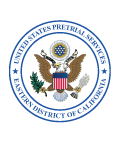Moral Reconation Therapy (MRT):
MRT is a systematic step-by-step treatment strategy designed to enhance self-image; promote growth of a positive, productive identity; and facilitate the development of higher stages of moral reasoning. MRT seeks to re-educate clients socially, morally, and behaviorally to instill appropriate goals, motivation, and values. Studies have shown that this program significantly increases the participant's odds of success. MRT is an open-ended program allowing clients to enter the program at any point in their supervision. Any client under Pretrial supervision can be referred to this program by making a request to their supervision officer. A facilitator will notify the defendant of their eligibility for the program and the specific workshop information. The MRT group meets one time a week for 90 minutes.
Better Choices Court:
In a cooperative effort with the U.S. District Court, Pretrial Services, Federal Defender’s Office, and the United States Attorney’s Office, we are committed to providing an alternative court program for defendants on pretrial release. This court program will provide a variety of treatment and sanction alternatives to address both behavior and rehabilitation, as well as the safety of the community.
This is a four phase program, and defendants are expected to complete the program within a year.
Better Choices Court is held monthly before the assigned U.S. duty magistrate judge and is available in all three offices.
Location Monitoring Program:
Location Monitoring is a cost-effective alternative to detention. It is a special condition imposed by the Court and it requires an individual to remain at home except for certain approved activities such as work, court appearances, and medical appointments. There are three levels of home confinement: curfew, home detention, home incarceration.
Workforce Development Program/JobSeekers:
The Workforce Development Program is dedicated to providing assistance to defendants in obtaining meaningful employment, and improving the likelihood of job retention, to strengthen a defendant’s community ties and reduce their risks of nonappearance and danger to the community.
Bureau of Prisons Orientation Presentations:
In cooperation with the Bureau of Prisons, Pretrial Services hosts an orientation class for defendants who are facing a possible federal prison sentence. Each participating defendant is permitted to bring one family member and their attorney. The class educates attendees on the Bureau of Prisons classification system, the visiting process, possessions allowed in the facilities and what defendants can take with them to the facilities, the commissary (store), rules for receiving mail, training programs, education courses, what to expect when entering the federal institution, all of which assist with the initial adjustment to institutional life.
Treatment Programs:
Pretrial Services provides defendants, while under supervision, with substance abuse testing, mental health counselling/evaluations, and substance abuse counselling (inpatient and outpatient) services when court ordered.
